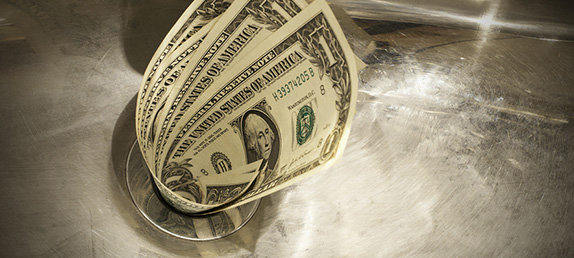
What you learned about investing in business school 30 years ago may be irrelevant in today’s investing environment. Back in your parents generation, the smart money went into the stocks of Blue Chip companies like Coca Cola and IBM. General Motors and General Electric were bell weather stocks and if you had a strategy of buy and hold, you usually earned a respectable return with relatively low risk and volatility.
In the 1970’s and 1980’s, the saying was still, as GM goes, so goes the rest of the country. You did not have high-speed trading and there was a sense that if you just invested in a few good mutual funds, run by smart fund managers like Peter Lynch of Fidelity, your money would grow steadily and you could look forward to a comfortable retirement.
Well guess what? Somewhere in the 1990’s, normally very conservative investors started taking big risks and making big profits. Average people quit their jobs and became day traders. Almost everybody got swept up in the excitement of technology, dot com companies, and rapidly rising IPO’s. Online discount brokerage accounts made it easy to trade frequently. History tells us that the exuberance did not last forever. When the dot com bubble burst, there was widespread pain among most investors. Only a small percentage of all investors came out of that crisis relatively unscathed. Many of those were individuals who had invested in gold and silver.
It is always easy to look back and see what went wrong. Some investors learn from their mistakes and others tend to repeat them over and over again. Perhaps the main reason why this happens is that what people think might be true is actually false.
I thought that…
Buying a house is always a smart investment.
If you bought a house in Southern California in 2002 and then sold it in 2006, you might have doubled your money. However, if you were the buyer of that house in 2006, the value of that house in 2010, could have been only half of your purchase price. Buying a house is not always the best way to invest money. When the housing bubble burst, it was shown, very clearly, that assuming that real estate always goes up can lead to very poor investment decisions.
Social Security would help me live a comfortable retirement
Did you really? With the country more than $17 trillion in debt and politicians disagreeing over the government shut down, US debt ceiling and government spending, the future of Social Security is in doubt. At some point, we will all have to face reality. Social Security does not keep up with inflation. It will get even worse when the COLA is calculated using a method designed to save the government money. With more Baby Boomers retiring and fewer people in the labor force, something has got to give. Either FICA taxes will go up for all employees or benefits will go down. The best guess is that both higher Social Security taxes for workers and fewer Social Security benefits for retirees are in our future.
Money invested in a Cyprus bank account was insured and safe.
As many investors found out during the recent banking crisis in Cyprus, their money, that they thought was safe, was not. When these unfortunate account holders opened their accounts, they thought that they were insured. However, the Cypriot Parliament is attempting to tax deposits and essentially “steal” some of the depositor’s money to help bail out the failed banks. The lesson to be learned is that guarantees are only as good as the entity making those guarantees. Changes in tax rates, or printing money and devaluing the currency, can have the effect of diminishing your wealth.
Developing alternate energy sources will lower the cost of gasoline.
Electric cars, natural gas, solar energy and giant windmills are all good things for our planet. However, despite increased use of these alternate energy sources, gasoline prices are not going to come down much anytime soon. Big oil interests will not stand by and let their “gold mine” dry up without a fight. They have plans in place and the assets and tools to execute those plans. Big oil can lower prices and slow or stop the development of new energy sources. If we could get oil at $80 a barrel, would we pay twice as much for the same energy production by using solar or wind power?
In a low or declining interest rate environment, you should not own gold.
There is no question that there is an inverse relationship between the price of gold and interest rates. In the summer of 2013, when the Federal Reserve started to hint that they would start tapering, the 10-year T-Bill quickly rose to almost 3 percent and the price of gold also began a steady decline. However, what you may not realize is that gold demand is very strong outside of the United States and that world demand is a strong force that may send gold prices even higher despite the threat of higher interest rates. While many gold investors still believe that you automatically sell gold when you believe interest rates are going to rise, you should look at all of the other factors like inflation, the strength of the dollar and demand, before making a decision to buy, sell or hold gold.
Not everything is so uncertain – think gold and silver
On a scale of 1-10, where 10 represents complete certainty and 1 represents total uncertainty, long-term investments in gold and silver probably deserve a rank of 8, or maybe even 9. Only death and taxes gets a 10. For more than 3,000 years, gold and silver have been used as money. If you had an ounce of gold in 1953 or an ounce of gold in 2013, you could buy a state-of-the art refrigerator. If you sold an ounce of gold back in 1953 and locked the cash you received in a safe, today, that money would not be enough to fill one shelf in your refrigerator.
Protecting your retirement savings
If you have been smart enough and lucky enough to have accumulated a nice sum of money for your retirement, the last thing you want to do is to take any big risks with that money. Have you considered setting up a Precious Metals Self-Directed IRA?
You can take control of the investments in your retirement account and reduce the uncertainty of the stock market and other riskier investments. No one knows for sure what will happen in the future, but gold and silver have a long history of retaining their value over time.
It pays to talk to someone who knows how to invest and understands all of the different ways you can invest in precious metals. Whether you are ready to invest in gold and silver now, or want to think about it for a while, it is always good to learn the real truth about investing in precious metals.
 Learn How Precious Metals Can Protect Your Portfolio
Learn How Precious Metals Can Protect Your Portfolio
Get a Free Investment Guide Now – Click Here.

